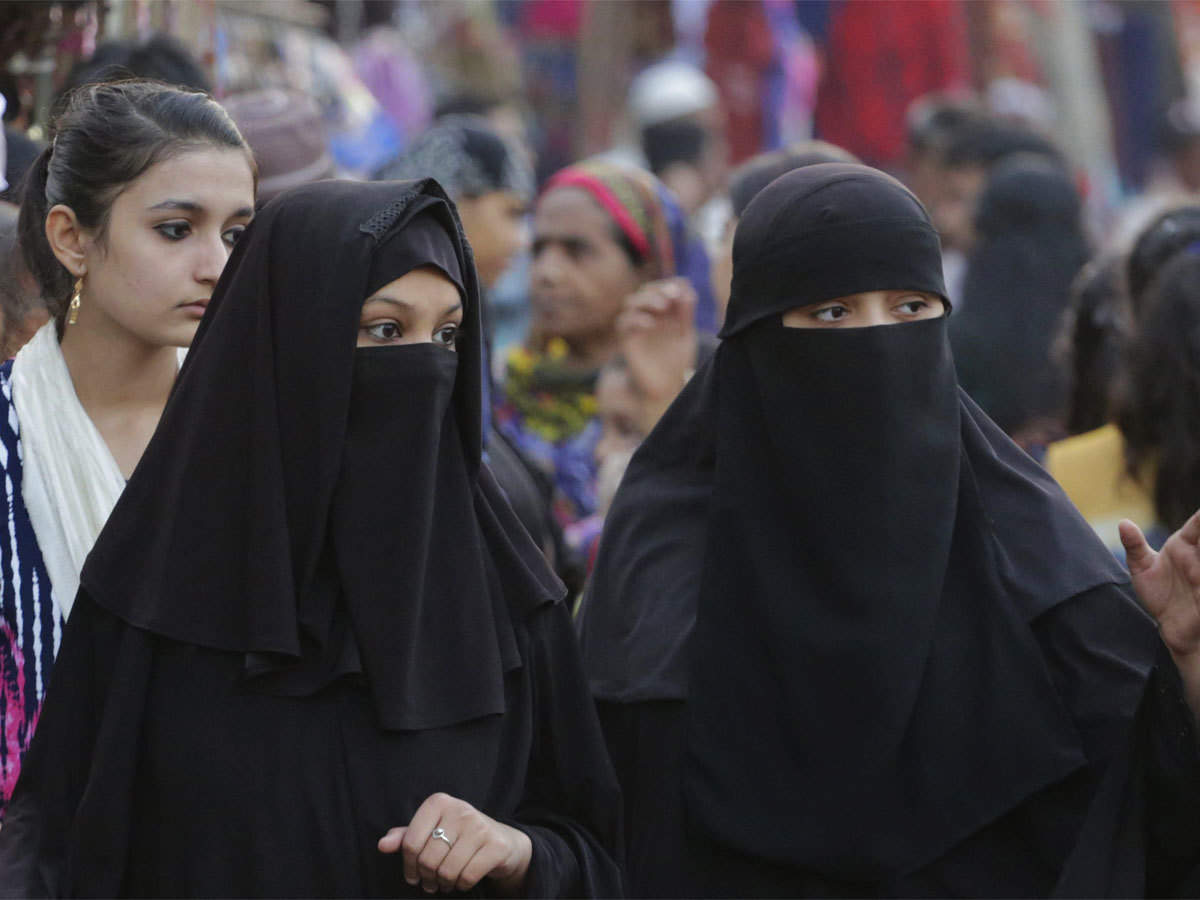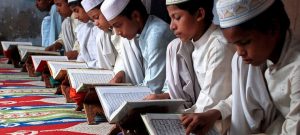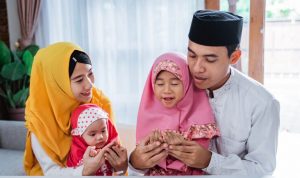“The Lord hath commanded that ye show kindness to your parents, whether one of them, or both of them, attain too old age with these. Wherefore say not unto them. Fie on you neither reproach them, but speak respect unto them, and submit to behave humbly towards them, out of tender affection, and say “O Lord: have mercy on them both, as they nursed me and give unto him that is of kin to you his due.”
The Quran
Table of Contents
Introduction
The Muslim law, like the English Law, treats the property as primarily and naturally individual. It does not like the Hindu system contemplate, as the normal state of things, the existence of mass of family property kept together through several generations as common fund for the common needs-material and spiritual of its members, nor does it lend itself, so easily as English Law, to artificial limitations of English system by means of entail and family settlements. Only the wife, she being possessed of property sufficient for her maintenance, can claim to be maintained at the expense of her husband as her right to maintenance is in the nature of consideration for her marriage contract.
Under Muslim Law, a man is bound to maintain his wife irrespective of his and her means and his minor children if he is not indigent. He is obliged to maintain his other relatives from whom he can inherit if he has means to do so and they are indigent.
Definition of maintenance
The Arabic equivalent of ‘maintenance is NAFQAH, which literally means, “what a person spends over his family“. In its legal sense, maintenance signifies and includes three things:
- Food,
- Clothing,
- Lodging
Hedaya defines maintenance as all those things which are necessary to the support of life, such as food, clothes and lodging, many confines it solely to food. Fatawa-i-Alamgiri says “Maintenance comprehends food, clothing and lodging, though in common parlance it is limited to the first.”
Liability for maintenance
A person becomes liable for Nafaqah or maintenance on account of a person :-
- being his wife,
- being his relative, i.e., children, grand children, aged parents, other relatives,
- being his servant.
Requisites for a claim
General rule.-The general rule in this regard is that only such person is entitled to maintenance-
(i) who has no property of his own,
(ii) who is related within prohibited degrees to the person, and
(iii) the person from whom he claims in “easy circumstances.”
Exception.
The above general rules do not apply to the following:
(i) when the claimant is wife, and
(ii) when the claimants are minor sons or unmarried daughters, except when he has no means.
Principles of maintenance
The principles upon which the Muslim Law of maintenance is based are briefly summarized as follows:
- The Muslim Law is not so catholic in spirit as the legal system of the Hindus, so there are very few provisions for the maintenance of the relatives.
- As a general rule, no relation except a wife, who is in easy circumstances, has any claim for maintenance. But a Muslim is bound to provide and is entitled to receive maintenance from his ascendants and descendants except under certain circumstances.
- According to Muslim Law, only those person are entitled to maintenance who are indigent and necessitous and are unable to earn their livelihood.
Persons Entitled To Maintenance
A Muslim is under an obligation to maintain the following persons :
1. His descendants,
2. His ascendants,
3. His collaterals, and
4. His wife.
There are three causes for which it is incumbent on one person to maintain in another marriage, relationship and property.
- Descendants (Father’s liability)
The father’s liability to maintain his children is absolute and is not affected by his indigence so long as he can earn. He is bound to maintain them, even it they are in their mother’s custody. A father is liable to provide maintenance to the following:
(i) minor children of either sex.
(ii) unmarried daughter.
(iii) married daughter, if she is poor, and
(iv) adult son, if he is necessitous (indigent).
The daughter has no unrestricted right to live as and where she likes, and claim separate maintenance from the father. It is only in special circumstances that she would be entitled to separate maintenance. If she refuses the offer to live with father she cannot claim maintenance.
Maintenance of children after the dissolution of marriage.
Under the Muslim law so far as the children out of the dissolved wedlock are concerned, the father’s obligation to maintain them is absolute in terms, so long as he is in a position to do so or the children have no independent income of their own.
Section 3(1) (b) of the Muslim Women (Protection of Rights on Divorce) Act, 1986 (later used as the Act of 1986) contemplates the divorced wife’s right to claim maintenance in respect of her children and this has nothing to do with the independent right of the children to be maintained by the father under the Muslim Law.
That right of the children is separate and independent of the divorcee wife’s (their mother’s) right to claim maintenance. Naturally, therefore, such a right cannot certainly be affected by the provision of Section 3(1) (b) of the Act of 1986.
Under Section 9, every pending application under Section 125 or 127 of the Cr.P.C. is to be disposed of in accordance without the provisions of the Act of 1986. This section however, does not apply to applications moved on behalf of children.
In a significant judgment of Noor Saba Khatoon v. Mohd. Quasim, the Supreme Court ruled that “a divorced Muslim woman is entitled to claim maintenance for her children till they become major. The Court held that both under the Muslim Personal Law and under Section 125 of the Cr. P.C, the obligation of the father was absolute when the children were living with the divorced wife“.
The Court further observed that “this right was not restricted, affected or controlled by divorced wife’s right to claim maintenance for two years from the date of birth of the children under Section 3(1) (b) the Muslim Women (Protection of Rights on Divorce) Act, 1986.”
Mother’s liability– When the father has no means and is indigent, the mother is liable to maintain her children, but she is entitled to recover the expenses from the father, when circumstances permit.
Grandparent’s liability. If both father and mother fail to maintain their children, it is the duty of the grandparents, maternal or paternal, to provide for their maintenance.
Father-in-law’s liability. There is no obligation on the father-in-law to maintain the widow of his son.
Under the Criminal Procedure Code, 1973, a son is entitled to claim maintenance upto the age of 18 years. The adult son is not entitled to claim maintenance from his father, unless such a son is infirmed or disabled, and is unable to maintain himself.
Under Hanafi Law, an illegitimate child is entitled to maintenance from its mother, but not from its father. But under Ithna Ashari school of Shia Law, the illegitimate child cannot claim maintenance either from the father or from the mother but can claim it under Section 125 Of C.R.P.C.
- Ascendants (Children’s Liability)
As the parents are under an obligation to maintain their parents, so are childrens liable to provide maintenance to their parents. Every child, whether male or female, adult or minor, who has sufficient property is responsible to supply maintenance to his parents.
Under Sunni Law, whether the parents are capable of earning or not makes no difference, the children are under duty to maintain their parents if they are capable of maintaining their parents. If a child is in a position to maintain only one of its parents, under Sunni law, mother gets priority over the father.
But under the Ithna Ashari Shia law, the child may distribute the maintenance allowance between the father and the mother equally, if both of them are needy but under Shia Law, the children are relieved of their duty, if the parents are capable of earning.
Grand children’s liability.-If there are-(i) no children, or (ii) the children are indigent, it is the liability of the grand children to provide maintenance to their grandparents.
- Collaterals
Under Hanafi law, a Muslim is under an obligation to maintain his collateral relations within the prohibited degree only in the following cases:-
- when he himself is in “easy circumstances”.
- the relation claiming to be maintained has no other means of maintenance.
However, under Shia Law, collaterals are not entitled in any case.
- Wife
The Muslim wife’s right to be maintained arises in the following two circumstances: First, on account of status arising out of a valid marriage and secondly on account of a pre- nuptial agreement entered into between the parties to the marriage, or between the parents in case the parties or one of them is a minor.
During the subsistence of marriage. According to the ordinary sequence of natural events, the wife comes first. Her right of maintenance in this case is absolute. Her right remains unprejudiced even if she has property or income of her own and the husband is poor.
A husband is bound to maintain his wife, irrespective of being a Muslim, non-Muslim, poor or rich, young or old if not too young to be unfit for matrimonial intercourse. In addition to the legal obligation to maintain, there may be stipulations in the marriage contract which may render the husband liable to make a special allowance to the wife.
Such allowances are called Kharch-i-pandan, Guzara, Mewa-khori, etc. The following conditions are:
- She has attained puberty, i.e., an age at which she can render to the husband his conjugal rights;
- She places and offers to place herself in his power so as to allow free access to herself at all lawful times and obeys all his lawful commands.
Chand Patel v. Bismillah Begum, 2008, S.C.
Facts Of The Case
The wife filed an application against her husband, claiming maintenance for herself and for her minor daughter under Section 125 Cr.P.C. She stated that she was the legally wedded wife and that her minor daughter was born from the wedlock.
She added that her husband had already married her elder sister but had thereafter married her with the consent of his first wife. Gradually, the husband had started neglecting her and her daughter who had no means to support themselves. She, therefore, claimed a certain amount as maintenance for each of them.
Before the Supreme Court, the husband denied that he had married the respondent. The husband contended that under the Muslim Law, a man could not marry his wife’s sister during his wife’s lifetime. That such conjunction was prohibited, even if the marriage had been performed the same was void in law and did not confer any rights either on the respondent or her daughter.
Decision
The Supreme Court held that if the marriage which was said to have been performed between the appellant and the respondent is held to be void then, respondent will not be entitled to maintenance from the appellant under Section 125 Cr.P.C.
If, on the other hand, the marriage is held to be irregular, then the marriage will subsist for all purposes, unless declared void by the competent court. Till such a declaration is made, along with the respondent, her daughter will also be entitled for maintenance under Section 125 Cr.P.C.
Disqualification Of Maintenance For Wife
Wife is not entitled to maintenance:
- If she abandons the conjugal domicile without any valid cause;
- If she refuses access to her husband without any valid cause;
- If she is disobedient to his reasonable commands;
- If she refuses to live with her husband without any lawful excuse.
- If she has been imprisoned;
- If she has eloped with somebody;
- If she is a minor on which account marriage cannot be consummated;
- If she deserts her husband voluntarily and does not perform her marital duties;
- If she makes an agreement of desertion on the second marriage of her husband.
Scale Of Maintenance
In determining the scale of maintenance, due from the husband to the wife, According to Hanafi law, the social position of both the husband and wife must be considered. The Shafei Law says that the position of the husband should alone be considered. The Shia Law is of the view that the maintenance should be determined by the wife’s requirements in respect of conditions, food, clothing, residence, service, etc., a due regard being also had to custom of her equals among her own people in the same city.
Conclusion
The laws on maintenance under Muslim Law and other personal laws are different. Under Muslim Law, the prime duty of man is to take care of his wife. However, his duty is further extended to his children and other blood relations. He is duty-bound to take care of his minor son. He is also bound to take care of his major son only under special circumstances. In the case of a daughter, he has to provide maintenance to her until she gets married.



